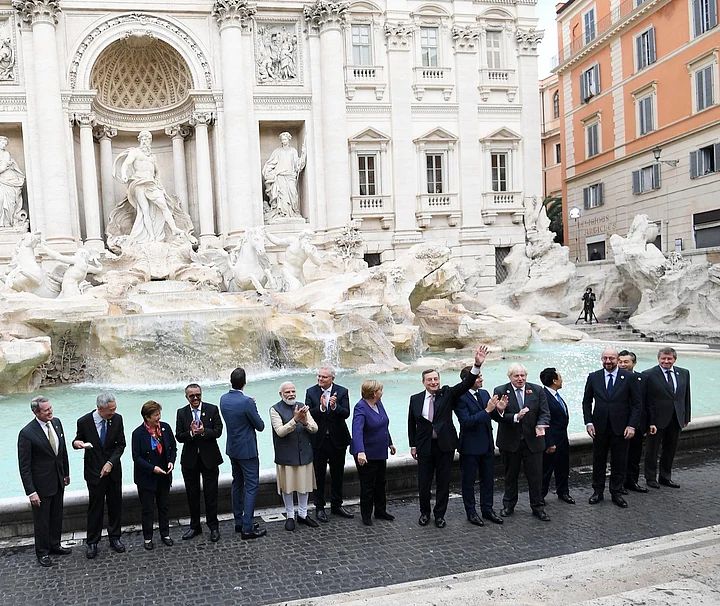At the G20 summit in Rome, leaders made a commitment to reach carbon neutrality by mid-century and made it a key goal to limit global warming to 1.5 degrees Celsius on Sunday, 31 October. As per a final communique, the leaders also pledged action on coal usage, but fell short on setting a target date for zero emissions, reported NDTV.
The Group of 20 major economies, which are responsible for nearly 80 percent of the world's carbon emissions, met to set targets to battle the climate crisis. Pledges made by the G20 are considered crucial to the success of the UN climate summit starting on Sunday, 31 October in Glasgow.
As per the communique, which was obtained by news agency AFP, the G20 leaders agreed to keep commitments that were agreed to at the 2015 Paris accords.
Removing references to "reduce emissions significantly" from a previous draft, the communique stated that the meet recognises that reducing emissions is the one of the fastest and the most feasible ways to limit climate change, reported Indian Express.
The document includes a pledge for nations to halt financing overseas coal-fired power generation by the end of the year, and states that limiting the global rise in temperature would "require meaningful and effective actions and commitment by all countries."
While the leaders agreed to end funding for new coal plants that do not filter their emissions abroad by the end of this year, the communique set no target to phase coal use domestically.
Two of the biggest economies in the world, India and China, are also the largest coal polluters in the world, as per Indian Express.
While diplomats have noted that the language in the communique was tougher as compared to the Paris accords, activists have slammed the document, reported NDTV.
Environmental campaign body Greenpeace called it "weak, lacking both ambition and vision," criticising the G20 leaders for failing to "meet the moment."
China stated its plans to make its economy carbon neutral before 2060, but was apprehensive towards setting a nearer goal.
Meanwhile, India argued that if leaders had agreed to reach "net-zero" emissions by 2050 globally, then developed nations that "enjoyed fruits of energy" should be carbon neutral by 2040, allowing developing nations a larger carbon allowance, reported NDTV.
G20 leaders, including US, China, India and Russia have called for clear plans at the national level, which "align long-term ambition with short-and-medium term goals," with international support and cooperation to achieve them.
As many as 200 nations are set to convene at the UN climate talks in Glasgow, including Prime Minister Narendra Modi and US President Joe Biden, as per Indian Express.
(With inputs from NDTV and Indian Express)
